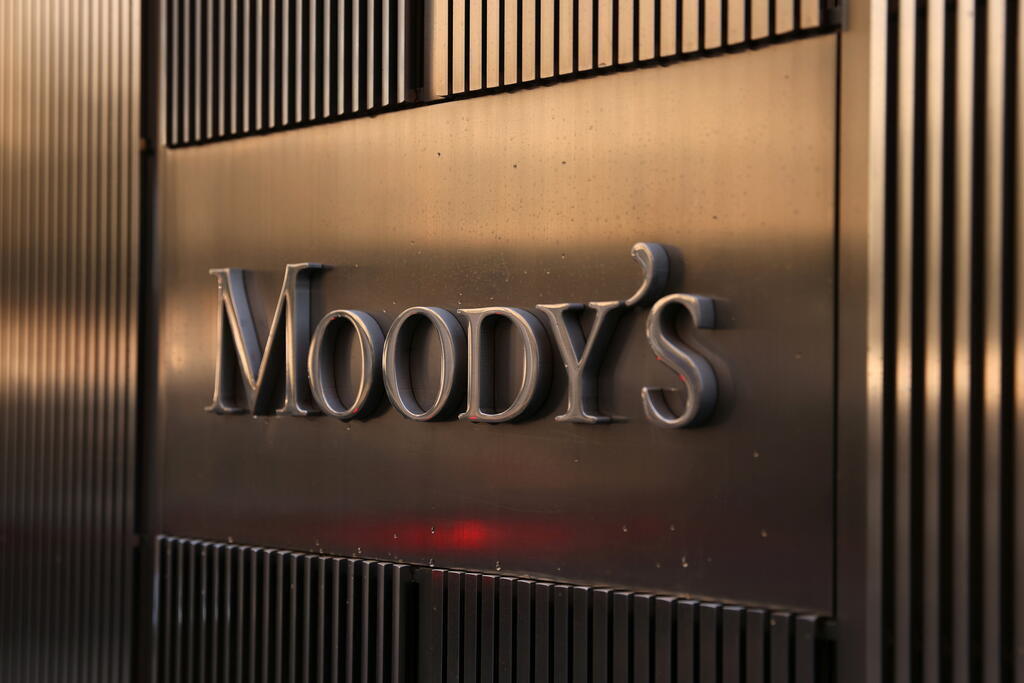Protesters fill the streets declaiming (or cheering) judicial reform. The Knesset rings out with animated accusations of deceit in the name of constitutional debate. Jewish moms message me from Rehovot saying, “Michael, your mother would turn in her grave, the dictatorship is coming!”
More Stories:
Not only that but, if you listen to the pundits, the political friction is pushing the Israeli economy’s most important sector into imminent freefall. Experts beat their chests lamenting big declines in venture investment.
5 View gallery


The recent downturn in venture capital investment in Israel mirrors the declines across the globe.
(Photo: Shutterstock)
Oy vey.
Global decline
Don’t give in to fear. Israel is in a superb position – probably the best globally, except for the United States – to ride the current and future waves of venture capital allocation. Israeli startups have never been stronger, more inventive, more dynamic, more sophisticated or more attractive.
The recent downturn in venture capital investment in Israel mirrors the declines across the globe. It has precious little to do with how many opposition Knesset lawmakers get to vote on judicial candidates.
For reasons of their own understandable concern, political conviction or personal inclination toward catastrophic thinking, commentators against the judicial reform link a couple of juicy data points together to paint a picture of looming economic doom for the State of Israel.
They correctly understand that Israel’s startup ecosystem has been the primary driver of the country’s economic boom. These doomsayers, most or perhaps all of whom are well-meaning, want you to believe that judicial reform is not only existentially bad for Israeli’s political and civic future – a question I will not discuss here – but also extremely bad for Israel’s economic life.
The motivating argument goes something like this: Even if you don’t comprehend the importance of the judicial reform debate, or even if you think it might be a decent idea, you are mistaken, because the world is reacting so negatively to it that this political discussion is about to kill Israel’s golden goose.
Proponents of this viewpoint turn to a pair of major recent news items as evidence. First, they cite the spring decision by Moody’s Investors Service, one of the world’s important credit ratings agencies, to downgrade Israel’s outlook from “positive” to “stable.” In explaining their downgrade, Moody’s Senior Vice President Kathrin Muehlbronner explicitly tied the change to the prospect of judicial reform in a country without explicit separation of powers.
No matter your initial reaction to the downgrade, you have to hand it to those credit rating services. Despite their whiffs on WorldCom and Enron and the mortgage-backed securities that gave us the 2008 global financial crisis, they certainly do get it right sometimes!
The second major observation doomsayers make is that venture investment in Israel has fallen. They’re right. It has. A lot. One well-credited report has it that VC going into Israeli startups declined in Q1 2023 by 70% as compared to Q1 2022. That headline number does make it seem as if the sky is falling.
No matter how hard they try, surely the doomsayers can’t blame judicial reform for investment declines in China, Korea, Finland, Germany, or even Indonesia.
Until you learn that global venture funding decreased by 53% over the same period. In the United States, venture funding fell by about 40%, according to a report by EY, and almost 40% of the investment that did come in Q1 2023 was in two massive individual deals. European venture investment was down about 75% year over year. A KPMG report shows that Asian VC investment declined about 70% over the same period, too.
Getting the picture? No matter how hard they try, surely the doomsayers can’t blame judicial reform for investment declines in China, Korea, Finland, Germany, or even Indonesia.
This brings us back to Moody’s downgrade and what to make of its impact on Israel’s startup investment climate. Here’s a conversation that never happened:
“Sam, I love this startup in Tel Aviv. Amazing founders, huge market, defensible technology, traction. Let’s go!”
5 View gallery


Moody’s Investors Service in spring downgraded Israel’s outlook from “positive” to “stable”
(Photo: Reuters)
“Yeah, but Sarah, don’t you know anything? Moody’s downgraded Israel’s sovereign credit outlook. This startup should be dead to us.”
A recent shift in the alleged creditworthiness of a country has never once, in recorded history, entered into an investment committee discussion about a particular startup. At most, allocators will be influenced by the prospective stability of a country’s governance.
A pension fund or sovereign wealth fund may, during their periodic reviews, determine that they want more exposure to a risk-off market versus a market that is deemed to be trending toward higher risk. There must be some rational actor in the world who will say “Let’s pause a little on Israeli venture investment allocation for next year.”
But these decisions happen slowly and only once in a while and, unless the country is in a full-fledged war like Russia or Ukraine, they happen only marginally, as well.
The U.S. connection
The reasons for the global, synchronous and fairly homogeneous decline in venture capital investment can't be disputed. The United States Federal Reserve has raised interest rates from 0% to 5% in the space of about a year.
5 View gallery


Today, U.S. bonds, the safest, most reliable, most tried-and-true investment options in the world, yield investors about 5%
(Photo: Reuters)
Today, U.S. bonds, the safest, most reliable, most tried-and-true investment options in the world, yield investors about 5%. And they’re liquid, meaning you can buy and sell your U.S. bonds at just about any time for very close to the original value.
In contrast, venture capital is an extremely risky asset, and is extremely illiquid, meaning your cash can easily be tied up for well over a decade. In response to the global crisis of 2008, the Federal Reserve collapsed interest rates to near zero.
The effect was fast, cumulative and humongous: Investors needed to chase riskier investments to make returns, so they plowed funds into risk-on assets like publicly listed stocks, real estate, high-tech venture and more.
During this period, Quantitative Easing (remember “Helicopter Money”) poured never-before-seen sums of new dollars into the system. For 15 years, the financial world has been awash in cash-seeking risk-on investments.
Suddenly, that train has come to a halt. Out of the blue, United States bonds once again produce beautiful returns. Central banks from other stable countries are making similar promises with their bonds. It's only natural that investors of all sizes would look to reallocate a lot of their money into safer, liquid assets like U.S. government bonds and away from publicly traded high-tech stocks, private equity and venture capital.
I myself have done the same: I now hold more United States bonds than I can remember. It’s not just me. Bank of America’s global fund manager survey recently revealed that investors favor bonds more than they have since the global financial crisis almost 15 years ago. (No, this isn’t financial advice; do your own research!)
This is what happens when the Federal Reserve raises interest rates above 4% for the first time since January 2008, when the Israeli startup boom was just beginning to gain speed. This is also what happens when the possibility of a material global recession is on the lips of investment allocators. There's a flight to safety. And guess what: venture capital has never been a safe asset, anywhere.
A reset is fine. It's right. It's typical. And it will make Israeli startups only stronger in the medium and long term.
Israel is experiencing a venture capital reset along with the rest of the planet. It's a healthy and good thing. You might even conjecture that over the past decade, there has been too much venture capital flowing into companies around the world, perhaps into Israeli startups more than those of most other countries.
A reset is fine. It's right. It's typical. And it will make Israeli startups only stronger in the medium and long term.
And, more than anything else, no matter your political opinion, the venture capital reset has just about zippo to do with judicial reform.
Michael Fertik is the Founder of Heroic Ventures, a Silicon Valley-based serial entrepreneur, and early-stage venture investor. His portfolio includes Israeli unicorns NextSilicon and Sunbit.



